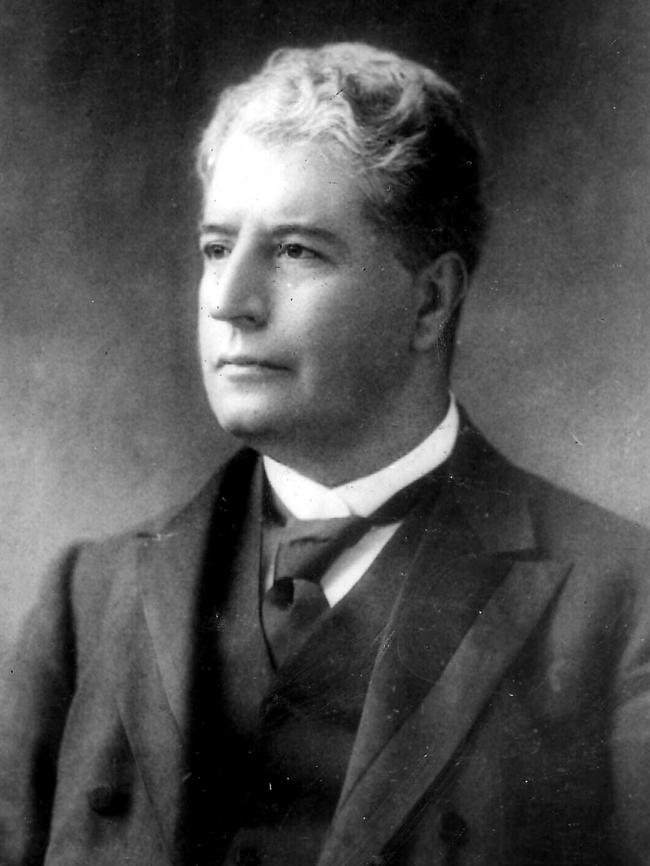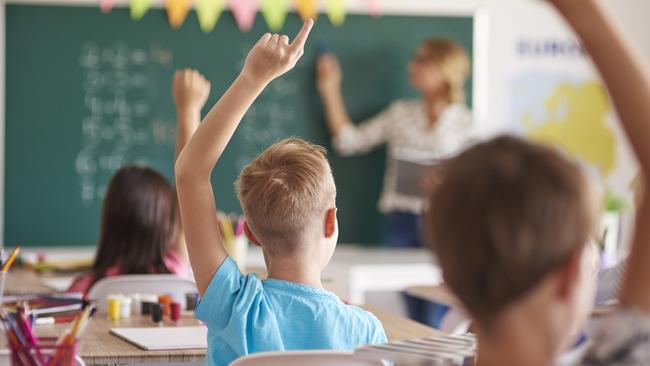Australia’s young people failing to understand how society works
LESS than 40 per cent of Year 10 students have an understanding of how our society works — including the role of institutions, democratic processes, government and legal systems or historical events that helped shape Australia. How we teach this must be fixed.
Opinion
Don't miss out on the headlines from Opinion. Followed categories will be added to My News.
A FEW weeks before being elected Australia’s first Prime Minister, Edmund Barton gave a speech at the West Maitland Town Hall in NSW. The date was 17 January 1901 and Barton was hoping to persuade his audience that he deserved the top job.
The speech wasn’t transcribed. However, a copy of Barton’s speaking notes have now been published on the Museum of Australian Democracy’s website.


His notes are essentially a checklist of the necessary steps and foundations for a system of modern governance:
“First task to prepare for elections.”
“Federal capital ... Early steps select capital site.”
“High court. Greatest bulwark of rights under Constitution … Attorney-General already preparing statute to establish Court.”
“Defence. Department second to none.”
“Public service. Customs passed over on 1 January under Constitution. Other departments will be taken over as soon as possible.”
DASTYARI HAD TO GO BUT CHINA THE BIGGER ISSUE
Among these tasks, Barton also included the line: “We rely on the people.”
It’s telling that the person on the cusp of being elected as the first Prime Minister of Australia, would have this simple sentiment top of mind — that a society’s civic institutions, no matter how grand or noble, amount to nothing without the people they serve.
“Not only are Australian students failing to grasp the basics of citizenship, but they are also demonstrating high levels of disengagement, with only 35 per cent indicating they’re ‘very’ or ‘quite’ interested in Australian politics.”
This is a test and survey of children’s knowledge and understanding of what it means to be active citizens.
This includes an understanding of the role of our institutions, democratic processes, government and legal systems, and the historical events that have helped shape our country as we know it today and that underpin our core values.
With less than 40 per cent of Year 10 students meeting the proficient standard, it is sadly clear that our children are not getting the skills to be able to fully participate and contribute to civil society.
We put a lot of emphasis on teaching Australian children the basics of literacy and numeracy, as well as the importance of STEM subjects — science, technology, engineering and mathematics — and rightly so.

But ensuring active citizenship is equally critical to the future success of our nation.
Not only are Australian students failing to grasp the basics of citizenship, but they are also demonstrating high levels of disengagement, with only 35 per cent indicating they’re “very” or “quite” interested in Australian politics.
These are students who in two years’ time will have the right to vote, yet lack interest in our political system and basic knowledge of the mechanics of government.
It is clear that more of the classroom time spent on learning about society needs to be dedicated to the basics of civics and citizenship.
However, the responsibility does not only lie within our schools. The family home is also a crucial place of learning.
With only 43 per cent of students surveyed stating they regularly discuss politics or social issues with family members, parents should also ask themselves if they are promoting an environment of discussion, of debate and inevitable learning.
Needs-based education reform
Of course, political leaders have a key role to play in inspiring young people. While people have always been cynical about politics and politicians, we should celebrate the ability for dissent, accountability and change that our democratic systems enable.
And while addressing concerns for job security and cost of living is rightly at the forefront of our government’s priorities, we should still acknowledge the globally high standard of living and freedom our civic structures have delivered.
Like Barton 117 years ago, our children need knowledge of the building blocks that underpin Australia as we know it today. That will enable them to fully participate in ensuring the continued strength and success of our nation.
Simon Birmingham is Federal Minister for Education and Training.


